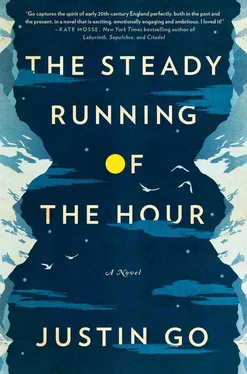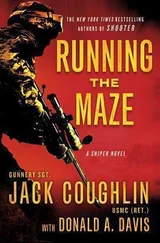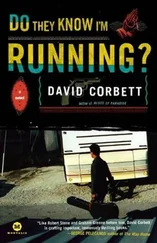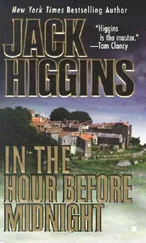25 FE 24
AE WALSINGHAM MOUNT EVEREST EXPEDITION OBTERRAS LONDON
DEAREST ASHLEY TAKE NO RISKS YOU ARE PRECIOUS BEYOND RECORD I PROTECT YOU WITHOUT END IMOGEN

Four days later I’m back at the Joachimstaler Straβe post office asking for a clerk who speaks English. I lean on the counter watching the patrons wait in line with parcels in their arms. The same manager lopes to the counter and nods at me gruffly. He waits for me to speak first.
— I got an e-mail from the post office. But it was all in German.
— What did you expect? You are in Germany.
The manager leads me back to his office and tells me to sit. He walks down the hallway and returns with an archival box of blue cardboard. He sets the box atop the stacks of paper cluttering his desk.
— Look inside.
I remove the lid from the box and look at the five envelopes inside.
— They were in the philatelic archive, he says. I suppose even eighty years ago someone knew we don’t often get poste restante from expeditions.
The manager leans back in his chair and watches me. Then he adds, — They are the property of the archive now. Even if the addressee came to collect them she would probably be refused.
— I don’t want to collect them. I just want to read them.
The manager stands up and shakes his head.
— I don’t have the authority. It’s a matter of privacy. You can make a request with the archive—
The manager narrows his eyes at me.
— How long are you staying in Berlin?
— I don’t know. A few days.
The manager nods, taking a steel ruler from a cup on his desk and tapping it against his hand.
— Someone has opened the envelopes, maybe a worker in the archive. But I doubt if anyone has read these letters. Probably no one will read them. They will go back to the same shelf where they have been sitting for fifty years. Then they will sit there for fifty more years—
He looks up at me.
— You say you are related to the addressee? Your family name is not the same.
— I’m related to the addressee and the sender.
— Do you have any proof?
I rummage through my bag, taking Ashley’s inscribed card from my notebook and handing it to the manager. He puts on a pair of reading glasses and examines the card. His eyeglasses are bent and one of the hinges has been mended with electrical tape. The manager opens the archival box and removes a letter from its envelope to compare the handwriting. Then he takes a glass loupe from his desk drawer and examines the card. He murmurs something in German, putting the loupe back on his desk.
— It’s not typical, he says.
The manager looks at me and asks me where I’m from. We talk about California and the manager says he has visited San Francisco several times for philatelic conferences. He asks questions about my family and my university studies, watching me closely as I talk.
The manager grasps his steel ruler and swivels in his chair. He slaps the end of the ruler into his palm.
— How did you know these letters were in the archive? They’re not in the public catalog.
— I didn’t know.
— Then why did you come here?
— I knew the letters had been sent here and I doubted they’d been collected. So I figured I might as well ask. But I never thought anybody would have saved them.
The manager shakes his head, tossing the ruler on his desk.
— I would not think so either. Your grandfather sent them?
— My great-grandfather. Ashley Edmund Walsingham.
— Who is the woman the letters are addressed to?
— Imogen Soames-Andersson.
I hesitate. Then I add, — My great-grandmother.
— She was traveling in Berlin? Or living here?
— I don’t know.
— Why did she not collect the letters?
— I don’t know. Maybe I’d know if I read them.
The manager watches me across his desk. There is a long silence. He opens a drawer in a filing cabinet and hands me a pair of thin cotton gloves. He nods at the archival box.
— Wear the gloves, he says. There is a copying machine in the next room. Do not use the feeder, do not bend the pages. Put them in the envelopes when you are done. The correct envelopes.

The photocopied letters in my shoulder bag , I ride the U-Bahn back to my hostel at Rosenthaler Platz. My dorm room hovers several stories above the intersection of three busy streets. A group of Canadian backpackers greets me as I enter.
— Are you going out?
— Out?
— It’s Friday night. You aren’t going out?
The Canadians change clothes and set out for the evening. I undress and climb into the narrow shower stall. I open the tap and let the water grow hotter and hotter, filling the bathroom with dense steam until I can barely see. Wrapped in a towel, I lie damp and dripping on my bunk for a long time. The room is warm, much warmer than the house in Picardie. Mireille must be back in Paris by now. She could be on her way to the same bar where we met two weeks ago.
I get out of my bunk and get dressed. On the opposite corner of Rosenthaler Platz there is a two-story café that is open late into the night. I order a coffee at the counter and climb the stairs, sitting down at a small wooden table. I spread out the five photocopied letters in chronological order, then set my notebook and pen beside the copies. The pages have Ashley’s familiar script in thick pencil, the letterhead printed MOUNT EVEREST EXPEDITION.
I pour sugar into my coffee from a glass dispenser, whisking a spoon in the dark foam. The spoon rings faintly on the china.

Pedong
28 Mar 1924
My dear Imogen,
I hardly knew what to think when I got your telegram. It was right before I sailed & it nearly smashed my mind to pieces; I went through my last days in London & Liverpool in a fog. I thought about you the long weeks at sea, and tore up half a dozen letters, wondering all the while whether I ought to write or not. In the end I knew you hadn’t asked me to write, and so I would not.
But with you, I never could control my feelings.
This letter goes Poste Restante to the Berlin GPO and I cable you saying so; you shall collect it if you wish to, and I shall hope that eases my mind. In these spare moments near dusk, the other men take out pen & paper to write to wives & lovers; you are neither to me, but I write to you now anyway, too far away from civilization to give a straw what is proper. To me you are all that is proper.
From Bombay I travelled by train across the plains of India with two of the other climbers, Price & Somervell. The heat & dust were overwhelming, the train carriage a place of sweltering sleeplessness and ravenous mosquitoes, where I passed in & out of strange reveries and walked the corridors by night. The sole consolation was swinging open the carriage door and standing in the doorframe holding the rail, feeling the night breeze and watching the stars over the horizon, the woodfires burning in lonely huts below.
We came up to Darjeeling by the narrow-gauge railway, twisting through dense tropical forest, the track crawling to one direction & then the other. I craned my neck out of the window to watch the little blue steam-engine chug along. So steep was the climb that they stationed a man above the engine to throw gravel over the tracks for traction. Noel, the expedition’s photographer, sat on the top of the carriage running his cine camera, ducking flat at times to avoid branches and vines thicker than alpine rope.
Читать дальше













